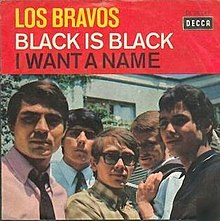
"That'll Be the Day" is a song written by Buddy Holly and Jerry Allison. It was first recorded by Buddy Holly and the Three Tunes in 1956 and was re-recorded in 1957 by Holly and his new band, the Crickets. The 1957 recording achieved widespread success. Holly's producer, Norman Petty, was credited as a co-writer, although he did not contribute to the composition.

"Promised Land" is a song lyric written by Chuck Berry to the melody of "Wabash Cannonball", an American folk song. The song was first recorded in this version by Berry in 1964 for his album St. Louis to Liverpool. Released in December 1964, it was Berry's fourth single issued following his prison term for a Mann Act conviction. The record peaked at #41 in the Billboard charts on January 16, 1965.

"Get Ready" is a Motown song written by Smokey Robinson, which resulted in two hit records for the label: a U.S. No. 29 version by The Temptations in 1966, and a U.S. No. 4 version by Rare Earth in 1970. It is significant for being the last song Robinson wrote and produced for the Temptations, due to a deal Berry Gordy made with Norman Whitfield, that if "Get Ready" did not meet with the expected degree of success, then Whitfield's song, "Ain't Too Proud to Beg", would get the next release, which resulted in Whitfield more or less replacing Robinson as the group's producer.
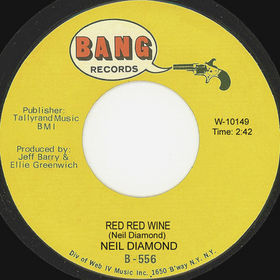
"Red Red Wine" is a song originally written, performed and recorded by American singer Neil Diamond in 1967 that appears on his second studio album, Just for You. The lyrics are written from the perspective of a person who finds that drinking red wine is the only way to forget his woes.
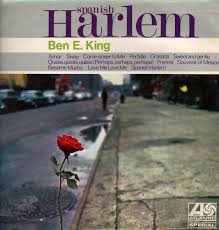
"Spanish Harlem" is a song recorded by Ben E. King in 1960 for Atco Records. It was written by Jerry Leiber and Phil Spector and produced by Jerry Leiber and Mike Stoller. "Spanish Harlem" was King's first hit away from The Drifters, peaking at number 15 on Billboard's rhythm and blues and number 10 in pop music chart.

"Didn't I (Blow Your Mind This Time)" is a song by American soul group the Delfonics, co-written by producer Thom Bell and lead singer William Hart. It was released as a single in 1969 on the Philly Groove record label and appeared on their self-titled third album the following year. The song reached number three on the Billboard R&B chart and number ten on the Billboard Hot 100 in 1970. Overseas, the song peaked at number 22 on the UK Singles Chart in and number 81 in Australia. The Delfonics won a Grammy Award for Best R&B Vocal Performance by a Duo or Group for the song in 1971.

"I Put a Spell on You" is a 1956 song written and recorded by "Screamin' Jay" Hawkins. The selection became a classic cult song, covered by a variety of artists. It was Hawkins' greatest commercial success, reportedly surpassing a million copies in sales, even though it failed to make the Billboard pop or R&B charts.

"Lucille" is a 1957 rock and roll song originally recorded by American musician Little Richard. Released on Specialty Records in February 1957, the single reached number 1 on the Billboard R&B chart, 21 on the US pop chart, and number 10 on the UK chart. It was composed by Albert Collins and Little Richard. First pressings of Specialty 78rpm credit Collins as the sole writer. Little Richard bought half of the song's rights while Collins was in Louisiana State Penitentiary.
"I Don't Want to Talk About It" is a song written by American guitarist Danny Whitten. It was first recorded by American rock band Crazy Horse and issued as the final track on side one of their 1971 eponymous album. It was Whitten's signature tune, but gained more fame via its numerous cover versions, especially that by Rod Stewart. Cash Box magazine has described it as "a magnificent ballad outing."
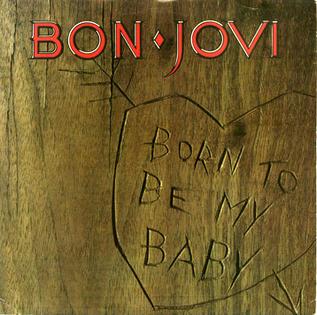
"Born to Be My Baby" is a song by American rock band Bon Jovi. It was written by Jon Bon Jovi, Richie Sambora, and Desmond Child. It was released on November 24, 1988 as the second single from their fourth studio album New Jersey. It peaked the following year at number 2 on the Cash BoxTop 100, 3 on the Billboard Hot 100, number 7 on the Mainstream Rock Tracks chart, number 22 in the UK, and number 30 in Australia.

"Under the Boardwalk" is a pop song written by Kenny Young and Arthur Resnick and recorded by the Drifters in 1964. It charted at number four on the Billboard Hot 100 chart on August 22, 1964. The song has since been covered by many other artists, with versions by Bette Midler, Sam & Dave, Tom Tom Club, The Rolling Stones, Billy Joe Royal, The Beach Boys, Bruce Willis, Bad Boys Blue, John Mellencamp and Lynn Anderson all charting in the United States or overseas. The song ranked number 487 on Rolling Stone's list of The 500 Greatest Songs of All Time in 2004 and number 489 in 2010.
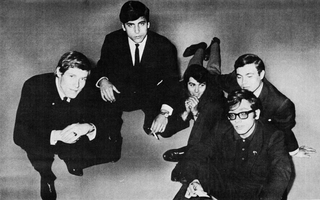
Los Bravos were a Spanish beat group, formed in 1965 and based in Madrid. They are most well known for their debut single "Black Is Black" which reached No. 2 in the United Kingdom in July 1966 and No. 4 in the United States, selling over a million records worldwide.
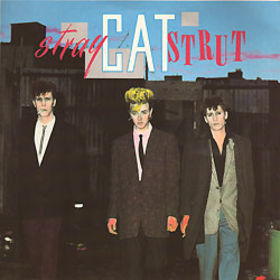
"Stray Cat Strut" is the third single by American rockabilly band Stray Cats, released April 17, 1981 by Arista Records in the UK, where it peaked at No. 11 on the Singles Chart. It was taken from the band's 1981 debut album, Stray Cats. That same year, as an import, it peaked at No. 78 on the US Disco Top 80 chart.
"Winchester Cathedral" is a song by the New Vaudeville Band, a British novelty group established by the song's composer, Geoff Stephens, and was released in late 1966 by Fontana Records.
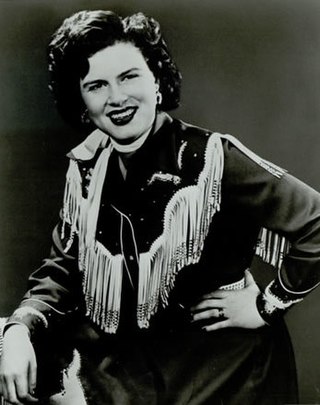
The discography of American music artist Patsy Cline consists of three studio albums, 24 singles, six extended plays, one compilation album, six other charted songs and one album appearance. Cline's discography contains material released during her lifetime. Her first recordings took place under the direction of Four Star Records. Cline's first single, "A Church, a Courtroom, Then Goodbye," was released in July 1955. Four Star issued 17 singles during Cline's four years recording with them. However, only "Walkin' After Midnight" (1957) became a major hit, reaching number 2 on the Billboard country songs chart and number 12 on the Billboard pop music chart.
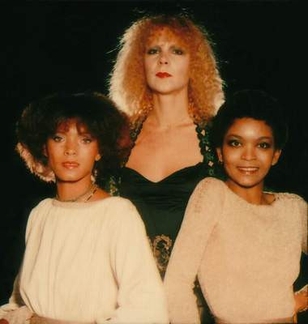
Belle Epoque was the name of a female vocal trio, based in Paris, France. The group first rose to popularity during the late 1970s with a disco remake of the song "Black Is Black", originally a hit in 1966 for the Spanish group Los Bravos.

Tee-Set was a pop rock band formed in 1965 by singer Peter Tetteroo in Delft, Netherlands. The band is best-known for their single "Ma Belle Amie", which was a No. 5 hit in the United States and No. 3 in Canada.

"Love Will Conquer All" is a track from Lionel Richie's 1986 album Dancing on the Ceiling featuring Marva King on backing vocals. The song was written by Richie along with Greg Phillinganes and Cynthia Weil. "Love Will Conquer All" was Richie's tenth number one on the Adult Contemporary chart. The single spent two weeks at number one and peaked at number nine on the Billboard Hot 100. "Love Will Conquer All" also went to number two for two weeks on the soul chart, behind "Tasty Love" by Freddie Jackson.

"I'll Be Home for Christmas" is a Christmas song written by the lyricist Kim Gannon and composer Walter Kent and recorded in 1943 by Bing Crosby, who scored a top ten hit with the song. Originally written to honor soldiers overseas who longed to be home at Christmas time, "I'll Be Home for Christmas" has since gone on to become a Christmas standard.

"Any Way That You Want Me" is a song written by Chip Taylor that was first released in September 1966 by Tina Mason as the B-side to her single "Finders Keepers". It has been covered by a number of artists, with the most successful version being by English rock band the Troggs.
